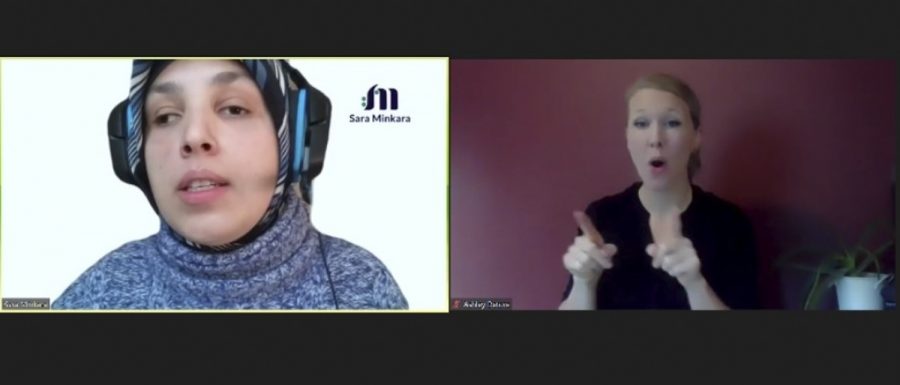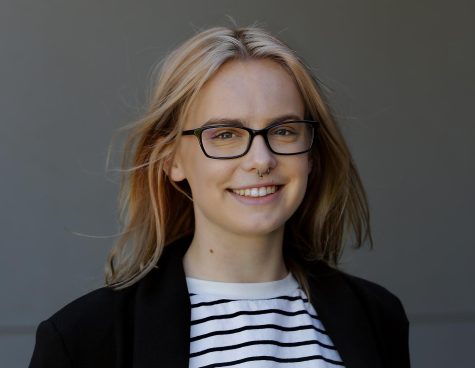Activist pushes to eliminate disability stigma
Event speaker started summer camp where children learn about inclusion
Sara Minkara went blind at 7 years old, and her mom, family and peers supported her. Now, she focuses on empowering people with disabilities.
November 19, 2020
The founder of a nonprofit dedicated to eliminating the stigma surrounding people with disabilities spoke about normalizing disabilities and being an ally Wednesday during the last event of the Access Center’s Disability and Intersectionality Series.
Sara Minkara, founder of Empowerment Through Integration (ETI), said she went blind at 7 years old, but because she was so young, she was able to adjust easily. Her mom, family and peers empowered and supported her, she said.
“My mom never allowed the narrative of disability to enter our home, the narrative that there’s something wrong with you,” she said.
She said her mom pushed her to pursue her dreams, and she continued to attend regular public school in her town.
Minkara said she majored in math and economics in college and earned her master’s degree from Harvard. She was also able to travel to 33 countries.
She said she was able to experience all of this because she was treated as an individual and a human.
“Growing up, I realized that wasn’t the reality for most kids with disabilities,” she said.
Minkara said she started a summer camp in Lebanon when she was in college. It is called Rafiqi, which means “my friend,” in Arabic. The summer camp is open to children, with or without a disability, and is a place for children to learn the importance of inclusion.
A young teenager who attended the summer camp wrote a poem about their disability, she said. The poem was about how the teenager would rather be invisible because if they were seen, they would be laughed at and hurt.
Everyone has the power to empower others, she said. If someone says they expect great things from someone else, that person feels as if they can make a difference in the world.
Speaking up and acknowledging someone who may not have as much of a voice in the world helps people with disabilities feel supported, she said.
It is difficult to help people with disabilities during COVID-19 because not everyone with disabilities can use electronic devices, Minkara said. An easy way to help support and include someone with a disability would be to ask what they need with compassion, she said.
One billion people in the world live with a disability, which is one-seventh of the world’s population. People should ask themselves how they can support and be an ally to people who are disabled, she said.
She said she doubted herself when people would pity her for being blind as a child, but she slowly embraced who she is.
“Let’s be real, I am a person with a disability,” Minkara said. “Instead of ignoring that, let’s actually use it and see it as part of my identity.”











